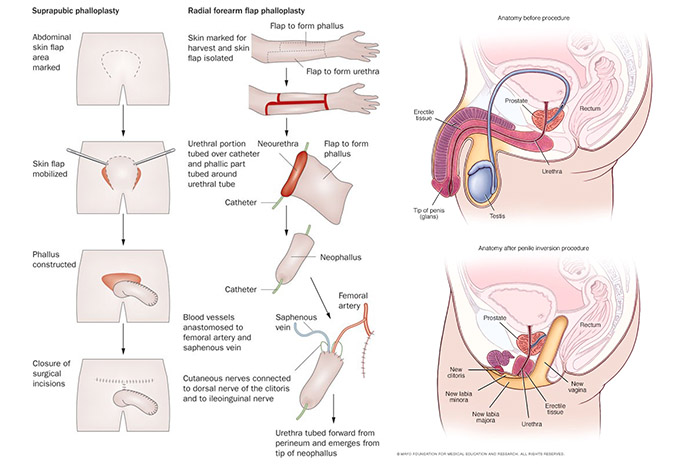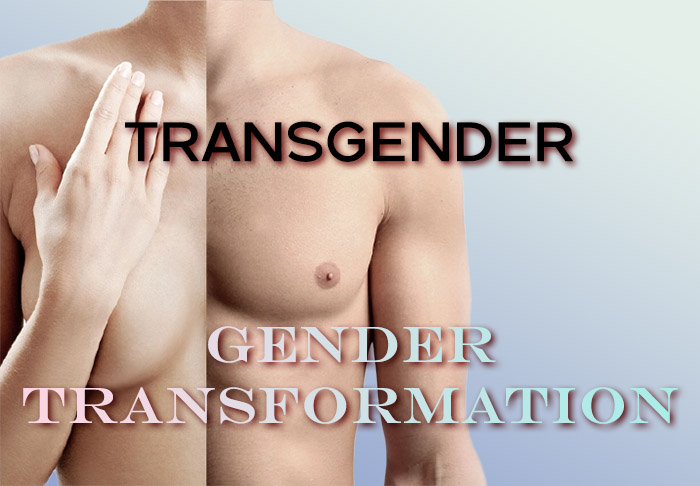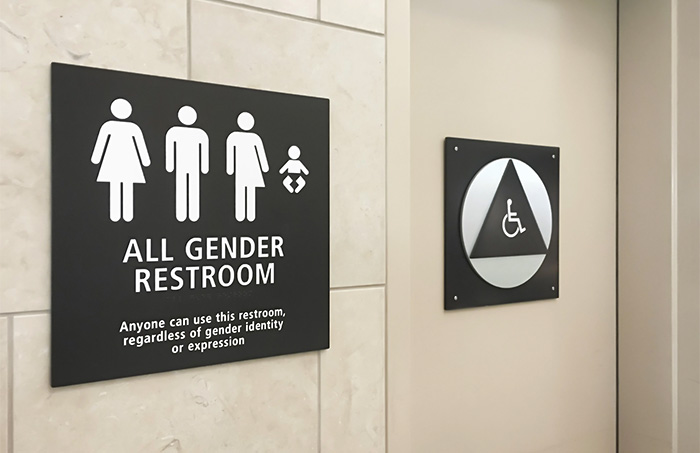Top 10 Commonly Misunderstood Questions About the FTM Transgender
Today, when the world is becoming more and more attentive to different gender orientations, you need to distinguish fact from fiction in your knowledge about the FTM transgender community.
Although the FTM community, populated by people assigned female at birth who self-identify as male, has many misconceptions that interfere with the widespread acknowledgment and encouragement.
By overcoming these misconceptions, we can create a more open and understanding space for all.
So, let’s dive into the top 10 most misunderstood questions about FTM people.
Transgender People Are a Mental Illness
Perhaps the most common misconception surrounding FTM is that being transgender signifies mental illness.
It’s important to understand that being transgender is not a disease; it’s simply one facet of human diversity.
You will realize that FTM individuals have a well-functioning brain, and most of them have distinguished careers and a functional family.
Nevertheless, the American Psychiatric Association defines gender dysphoria as an individual’s psychological response to a disparity between their natural sex and their self-identified gender identity.
They treat it as a medical condition that requires medical intervention before it causes severe effects on an individual.

According to the fifth edition of the American Psychiatric Association’s Diagnostic and Statistical Manual of Mental Disorders (DSM-5), the transgender community is no longer considered a mental disorder.
Accepting transgender people, especially the FTM, as they are, without pathologizing their identity, makes society more understanding and supportive, thereby enabling them to come out without being judged or despised.
Transgender People Are All Gay
Sexual orientation and gender identity are two different parts of a person’s self.
Simplifying the complex interplay of these aspects by assuming that all transgender people, whether FTM or not, are the elements you may misunderstand when understanding the FTM community.
Some transgender people are gay, but many others describe themselves as heterosexual, lesbian, or bisexual.
You also need to understand that gender identity has to do with how people see themselves as male, female, or another gender.
Sexual orientation refers to the emotional, romantic, and sexual attraction an individual feels toward other persons—at least in most cases.
Like cisgender people, trans men can identify as gay or straight and the sexual orientation they feel comfortable with.
Therefore, you should not assume that every transgender person you meet is gay; instead, try to inquire about their gender identity.

Choosing to Be Transgender Is Just a Way to Get Attention
Dismissing someone’s gender identification as attention-grabbing is one of the most hurtful things for the FTM people.
The FTM community goes through a lot of emotional and physical changes, like accepting their gender identity, which involves a process of discovery, understanding, and acceptance.
Others may experience intense transformation, such as surgery, that may affect their health for some time before they can return to normal, and hence, they need to gain the support they need from society during this time.
It’s also important to realize that being transgender is not something one chooses but a part of core identity.

If you assume that people are only changing for attention, then this reinforces harmful stereotypes and can hinder the creation of a truly welcoming environment.
You should recognize that transgender people have problems of their own—rejections, humiliations, discrimination, and supposed legal injustices; therefore, if you state that transgender is a way of getting attention, it may make their lives more complicated.
Transgender People Must Undergo Sex Reassignment Surgery
Another commonly misunderstood question that many people may not be aware of is the concern about sex reassignment surgery.
In the FTM community, many transgender people from all over the world do not choose to undergo sex reassignment surgery, meaning it’s not a must.
Procedures differ from person to person, and medical interventions are only one part of transitioning that some individuals may choose to assume.
Some FTM persons may choose hormone therapy, the route to legal gender recognition, or other non-surgical approaches that bring their outward appearance more in line with how they see themselves.
Respecting each person’s autonomy in choosing the course most attuned to their identity is necessary to enable them to feel appreciated and loved.

All Transgender People Want a Complete Gender Change
This myth that all transgender people want a complete gender change oversimplifies the wide variety of experiences and attitudes among FTM.
The journey is unique for each person, and that is why most of them have unique experiences.
FTM persons may go through social, medical, and legal transitions to varying degrees based on their health and personal choices.
For instance, FTM individuals may opt for social and legal transformation rather than medical transformation due to an underlying condition that they may be having or a personal decision.
Therefore, you may obtain a more inclusive conception of gender diversity through recognition and respect for the novel experiences of each individual.

They Regret Having Sex Reassignment Surgery
Such assumptions that people regret undergoing sex reassignment surgery create a dangerous and misleading narrative about transgender experiences.
Before the surgeons perform any sex reassignment surgery, they perform any necessary examinations on the patients, such as health conditions, to determine whether the patients are fit for the surgery or not; hence, there are minimal chances for regrets.
Although any medical procedure has the element of regret, many studies show a high level of satisfaction among transgender people after surgery.
Only a few percent may experience guilt due to the complications that may follow after the surgery.

There are different types of sex reassignment surgery, such as Metoidioplasty, vaginoplasty, and Phalloplasty, among others; therefore, an FTM individual may choose one that they feel comfortable doing.
It would help if you approached discussions about regret with sensitivity because opinions are different, and how people feel affects their mental and physical well-being.
They need help from healthcare professionals and society at large.
It’s Dangerous to Let Transgender People Use Normal Public Restrooms
Those who fear that permitting transgender people, including members of the FTM community, to use public restrooms according to their gender identity will put them at risk are wrong.
Remember, these individuals are human beings with feelings and emotions like you, and negative comments about them might affect them.
Transgender people using facilities consistent with their gender identity is a harmless practice that does not need to raise alarms.
In fact, withholding access to gender-appropriate facilities can cause trans individuals more stress and discrimination.
An inclusive environment guarantees the safety and welfare of all, which also makes the FTM community comfortable in expressing themselves.

Drag Queens and Kings Are Both Transgender
A person dressing and acting like an exaggerated caricature doesn’t make them anything but just that since the transgender community is more than dressing and acting, that’s why drag queens and kings deserve to be treated as one of the most beautiful aspects in all of LGBTQ+ culture.
Regardless of gender identity, drag performers use this medium to create awareness and educate society about other gender identities and what being transgender means.
Transgender people include both those who belong to the FTM community and others whose gender identity differs from that conferred on them at birth.
You should note that being aware of these differences gives a more refined view of the range within the LGBTQ+.

Teenage Transgender People Are Just Too Young to Know Gender Identity
The concept that teenagers who belong to the FTM community are too immature to comprehend their gender identity denies the legitimacy of those experiences.
Some transgender people, including teenagers, have a profound consciousness of their actual gender from an early age.
For instance, some individuals may discover their identity when they are young and only decide to come out when they are old enough due to personal reasons.

Dismissing or discounting their experiences at a young age can lead to a sense of isolation and impact mental health.
Some may end up being disowned by their family members, making them suffer both emotionally and financially since they cannot depend on themselves.
It’s important to listen, honor, and reassure transgender teenagers that the responsibility for understanding their gender identity is up to them to enable them to be comfortable in coming out when they are ready.
Trans-Inclusive Healthcare Is Expensive
The misunderstanding that trans-inclusive healthcare is too costly for most individuals to afford overlooks the more comprehensive economic benefits of fully and affirmatively meeting healthcare needs.
The rough budget for trans-specific treatment is between $20,000 and $70,000, which is the least amount since different insurance may cater for other expenses.
Many transgender people, including members of the FTM community, experience unequal access to healthcare and find it hard to get gender-affirming care.

However, you need to note that only a few individuals may need trans-inclusive healthcare since the majority of them are content with how they are.
Spending on trans-inclusive healthcare, such as mental health support and hormone therapy, as well as gender-affirming surgeries, leads to improved patient outcomes and a fairer medical system for all.
Acknowledging and meeting the healthcare needs of transgender individuals is a step toward creating an inclusive society with more compassion.
Conclusion
The FTM community faces various challenges and issues due to the misunderstanding within the society they live in, making it hard for them to express their true identity.
With our efforts to dispel misconceptions and create an environment of acceptance, in the past ten years, we have built a world where each individual can live authentically according to their gender identity.
Recognizing the value and dignity of each person’s life story, we can move toward a more open-minded and understanding society.
Learn More:

 Basic Packers
Basic Packers Pack & Play
Pack & Play STP
STP